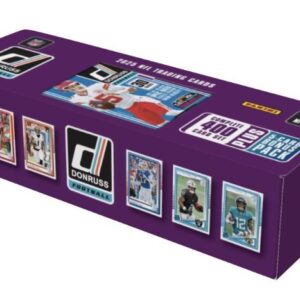Lloyd Howell stepped into a challenging situation taking on the role of executive director of the NFL Players Association (NFLPA). One of his first major business decisions resulted in a significant financial setback for the organization. The NFLPA has been ordered to pay $7 million to Panini following an arbitration ruling regarding the termination of their exclusive trading card contract last year.
The conflict arose when the NFLPA decided to terminate its agreement with Panini after some key Panini employees left for rival company Fanatics. Citing a “change in control” clause, the NFLPA sought to justify ending the contract. However, Panini argued that this move was merely a facade for the NFLPA to switch their allegiance to Fanatics, and the arbitrators sided with Panini.
Panini’s attorney, David Boies, emphasized the significance of the arbitrators’ unanimous decision, stating that the NFLPA’s actions violated legal obligations to Panini, moral responsibilities to fans and collectors, and fiduciary duties to its members. Boies highlighted that the termination of the contract with Panini led to substantial financial losses and damages for the players. He also commended Panini’s commitment to continuing to supply cards despite the dispute.
While Fanatics was not directly involved in the arbitration, Panini has initiated a separate lawsuit against them, alleging antitrust and tortious interference. The NFLPA has yet to provide comments on the ruling or the ongoing legal developments.
Beyond the financial implications, this arbitration outcome raises broader questions about the NFLPA’s decision-making process and its obligations to its members, fans, and the trading card community at large. The episode underscores the complexities and consequences of navigating business relationships in the ever-evolving sports memorabilia industry.
As the NFLPA grapples with this loss and the ramifications of the arbitration ruling, stakeholders will be closely watching how the organization addresses the fallout and adjusts its strategies moving forward. The outcome serves as a cautionary tale about the importance of transparency, integrity, and careful consideration in business dealings, especially in the competitive landscape of sports merchandise and licensing.





